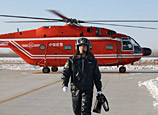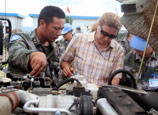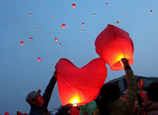
During the U.S. presidential election campaign, although Obama was not immune from the poisonous air of China-bashing, he took a comparatively sensible tone than his challengers.
At the same time, like any of his predecessors, Obama continued Washington's old China policy of double hedging during his first term and failed to significantly enhance strategic trust between the two nations although relations in other fields flourished.
With the high-pitched "Asia pivot," the increasing U.S. military presence in the West Pacific, the meddling of the South China Sea issue and the covert support for Japan in the Diaoyu Islands dispute, Washington's strategic mistrust of Beijing is evident.
In the eyes of many Chinese, those actions constitute a worrying sign. However, China has never sought to deny Washington's role in Asia and has no intention to dominate the region.
Evidently, the lack of strategic trust has become the main obstacle to a mature China-U.S. relationship, and building trust is the first step toward fostering a new type of inter-power relations between the two countries.
From a historic perspective, Obama has a unique opportunity to construct a new mode of U.S.-China ties for lasting peace and prosperity of the two countries and the world at large.
Obama has advocated "a new kind of politics" as his political brand, and China and many parts of the world are waiting to see if he can help build a new pattern of relations between Washington and Beijing.



















![]()
